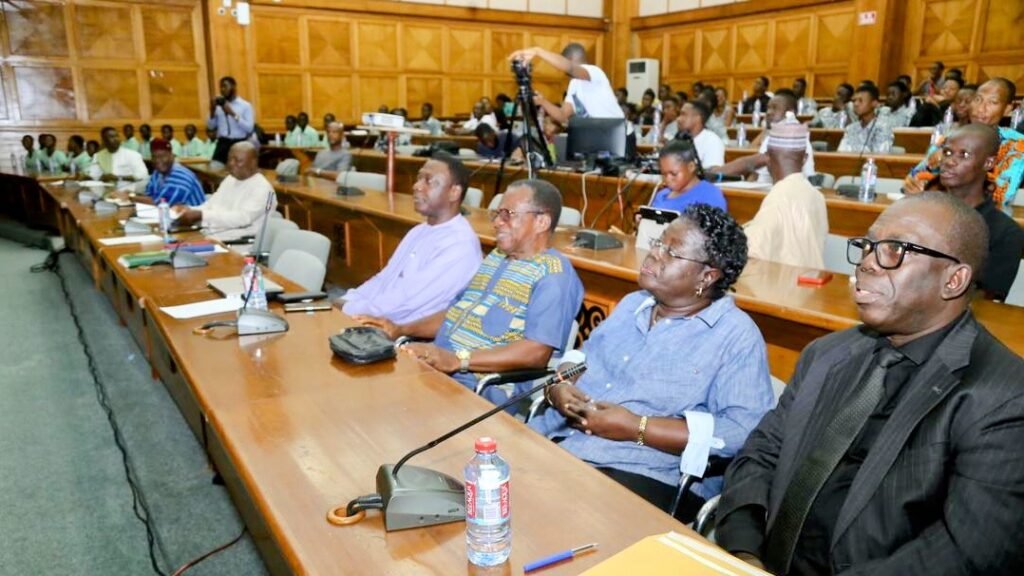ARTICLE AD
A justice of the Court of Appeal, Dr Poku Adusei, has urged Ghanaian writers to partner Collective Management Organisations (CMOs) to help address challenges they face in ensuring protection and usage of their intellectual properties.
CMOs are agencies responsible for licensing, collecting royalties, and distributing payments to creators and copyright owners for the use of their works.

Justice Adusei said that writers could adopt a collective licensing approach which enabled creators to negotiate licensing agreements with users, ensuring that their rights are protected and they receive fair remuneration.
He was speaking at a sensitisation forum organised by Copyright Ghana, a reproduction rights organisation in Accra on Friday to discuss ways in which writers could ensure proper protection of their work.
Held on the theme: ‘Relevance of Collective Writing for Text and Image Based Works in the Digital Transformation Era,’ and the event brought together representatives from the World Intellectual Property Organisation (WIPO).
Other participants were International Federation of Reproductive Rights Organisation (IFRRO), Copy Ghana, and students from the Accra Senior High School and Kaneshie Senior High Technical (KATECO).
According to Justice Adusei, copyright infringement was a critical issue most Ghanaian publishers face, and the government needed to give it important attention.
Additionally, he highlighted some challenges faced by publishers where Artificial Intelligence (AI) usage gave people information about publishers and writers without their permission.
He noted that Al systems often shared information without getting permission or giving credit to the original creators, adding that rules needed to be in place to ensure that those in charge of Al systems properly acknowledge and reference the original publishers.
“Copyright infringement is clear, but we need to educate the public about the effects of it .We also need to work with user institutions to ensure that they understand their obligations under the law,” he stated.
Justice Adusei further cited the example of educational institutions, which often used copyrighted materials without permission.
“While there are exceptions for educational use, these exceptions are limited and do not extend to the production of entire works,” he said.
For his part, the Chairman of Copy Ghana, Mr Asare Konadu Yamoa, emphasised the need to re-examine the management of copyright rights in the face of emerging technologies.
“As the digital landscape continues to evolve, Ghana’s efforts to adapt its copyright management system demonstrate a commitment to protecting creators’ rights and promoting their interests in the digital age,” he said.
BY AGNES OWUSU

 3 months ago
17
3 months ago
17 

